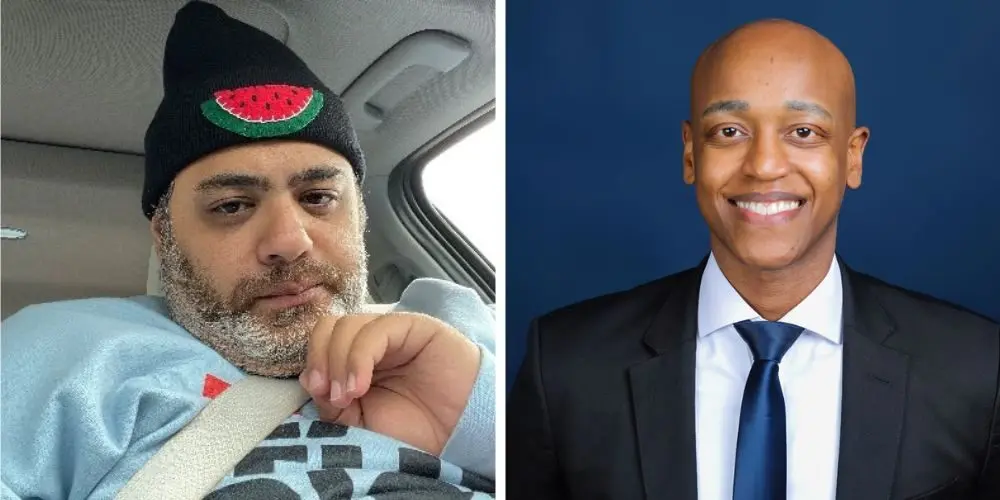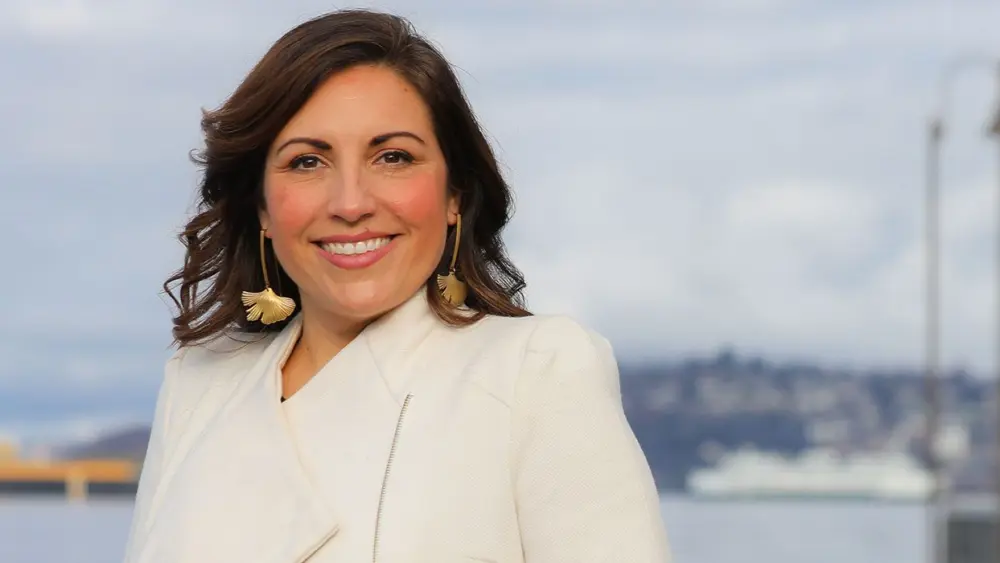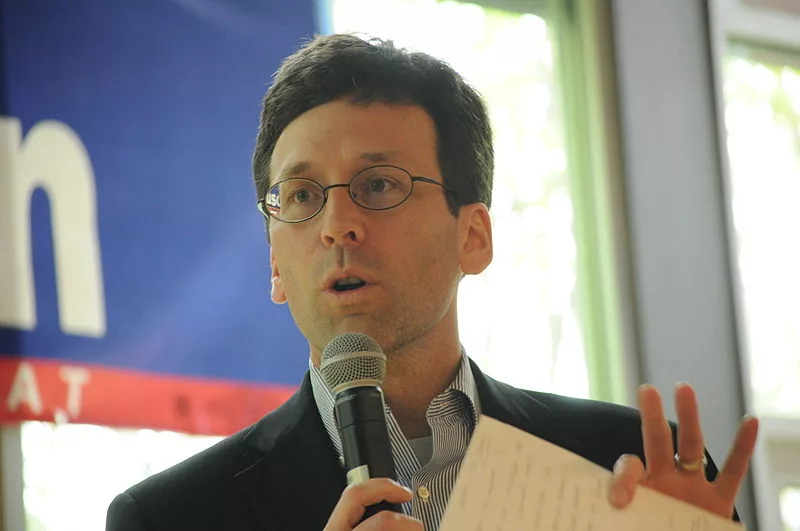
With Executive-elect Girmay Zahilay preparing to restructure county government, critics say the political transition offers the ideal moment to replace civilian oversight director Tamer Abouzeid amid accusations of antisemitic and anti-police social-media posts.
With a new King County executive preparing to reshape the government’s top ranks for the first time in 16 years, the future of Tamer Y. Abouzeid, director of the Office of Law Enforcement Oversight (OLEO), hangs in the balance as criticisms intensify, formal complaints mount, and calls for his removal echo from both law enforcement and community organizations.
OLEO was established as an independent, quasi-judicial watchdog over the King County Sheriff’s Office. Because its authority depends entirely on public trust, neutrality, and credibility with both deputies and the community, its director is expected to exercise exceptional professional restraint, especially in public commentary. The NACOLE Code of Ethics, which OLEO adopted, demands independence, integrity, and respect for protected groups, and warns against conduct that even creates the appearance of bias. Critics say Abouzeid has repeatedly violated these expectations.
🧵OBSTRUCTING JUSTICE
Meet Tamer Abouzeid @TamerLikeHammer the director of King County, Washington's Office of Law Enforcement Oversight @KingCountyOLEO. He is a radical Jew-hater and Hamas supporter
His job consists of demonizing police and tweeting antisemitism pic.twitter.com/IdeXCpyZBG
— Ari Hoffman (@thehoffather) March 14, 2024
Abouzeid has a long history of antisemitic, anti-Christian, anti-white, and anti-police social media posts written both during work hours and in his free time. Screenshots included in county records obtained by The Ari Hoffman Show on Talk Radio 570 KVI show a consistent pattern of posts attacking Israel and Zionism, including characterizing Zionism as “white supremacy” and “settler colonialism.”
In one tweet written after Hamas’ October 7, 2023, attack on Israel, in which more than 1,200 people were murdered, thousands injured, and over 250 taken hostage, Abouzeid wrote that “Israelis don’t want to know they can be avenged after the fact, but that they can be safe. So, ironically, this may be the closest we have gotten to peace in a while, because Israel only entertains peace if it must, just like 50 years ago.” He also described the massacre, including the sexual violence against women and the murder of children and the elderly, as “resistance,” writing that “resistance to invasion or occupation is an inalienable right.”
While Hamas was raping, torturing and murdering 1,200 civilians and kidnapping another 250, Abouzeid celebrated on social media pic.twitter.com/K2Ejq4hStO
— Ari Hoffman (@thehoffather) March 14, 2024
Additional posts suggested Israelis “don’t want to know they can be moved after the fact by their government” and framed public reaction to wartime atrocities as rooted in denial and historical amnesia. Critics in the Sheriff’s Office and among Jewish community members cite these comments as evidence of deep hostility toward Israel and Zionism. Many interpreted his comments as a callous dismissal of the massacre of Israeli civilians and as justification for Hamas’s violence.
Abouzeid's social media is filled with rhetoric demonizing Jews and the Jewish state. He has even shared the work and posts of multiple well-known antisemites pic.twitter.com/f0BKM7CijS
— Ari Hoffman (@thehoffather) March 14, 2024
In a 2001 Letter to the Editor of the Chicago Tribune called “Not Terrorists,” he defended Palestinian terrorism against civilians.
Abouzeid’s rhetoric extended to sweeping characterizations of Republicans and Christians. In one post, he suggested that joining the Republican Party and converting to Christianity amounted to an “embrace of white supremacy.” He amplified commentary claiming that extremist white Christians would become the primary drivers of hate crimes against Jews and Muslims. For conservative or Christian sheriff’s deputies, these comments signaled potential ideological hostility from the official responsible for evaluating complaints involving them.
His posts about law enforcement further deepened the crisis. From an account associated with OLEO, Abouzeid shared statements declaring that the entire criminal legal system was “rotten,” claiming that many within OLEO believed the system “should be dismantled,” and insisting that it “cannot be reformed” and must “be brought down by the power of the people.” Deputies interpreted these declarations as proof that the oversight director viewed their entire profession as illegitimate.
The antisemitic head of @KingCountyOLEO Tamer Abouzeid @TamerLikeHammer appears to be upset people are calling him out for being a Hamas supporter and his hatred of police
He seems to think it is "unhinged" to point out that he celebrates terrorists and demonizes Jews https://t.co/2oArSP3xJY
— Ari Hoffman (@thehoffather) March 14, 2024
Council Chair Dave Upthegrove previously warned Abouzeid in writing that his social-media conduct threatened OLEO’s credibility and undermined essential working relationships. In a March 22, 2023, letter, Upthegrove noted that the Council had received “several concerns” from law enforcement and community members regarding Abouzeid’s public statements. While affirming support for free speech, he stressed that as the face of OLEO, Abouzeid’s comments could be perceived as official positions and could “impact the public’s trust” in the oversight office. He urged Abouzeid to exercise greater care to ensure his posts did not compromise OLEO’s perceived fairness.
Concerns also arose over tweets made during King County work hours. Screenshots labeled “Working Hour Tweets” show Abouzeid engaged in political discussions on weekday mornings, raising questions about compliance with state restrictions on political activity during working time and blurring the line between personal commentary and official conduct.
The King County Police Officers Guild (KCPOG) previously issued a forceful demand for Abouzeid’s removal. In a unanimous letter signed by all nine board members, the guild declared him “unfit for his position,” accused him of “support of terrorists,” and argued that his continued employment “jeopardizes public trust in government.” The guild emphasized that its membership includes Jewish deputies who they believe cannot be treated fairly by a director who minimized Hamas atrocities, blamed Israel for its civilian losses, and portrayed Israeli victims as “gun-toting settlers.” They noted he had been admonished before for inflammatory statements from an official OLEO account and argued that removing him was essential to restoring trust.
Most of the King County Council ignored the request, even after passing a resolution the previous year to combat antisemitism
Councilmember Reagan Dunn, in an eight-page complaint, accused Abouzeid of violating workplace discrimination rules, breaching ethical obligations, and publicly attacking groups central to OLEO’s mission, including Jewish communities, Christians, Republicans, and law-enforcement personnel. Dunn urged the Council to open a formal investigation, writing that Abouzeid’s rhetoric, though potentially protected, had created a significant disruption and undermined OLEO’s legitimacy.
In his complaint, Dunn cited the NACOLE Code of Ethics, King County’s harassment and discrimination policies, and state statutes limiting political activity using public facilities during work time. He also urged the Council to evaluate Abouzeid’s speech under the Pickering–Connick test, asserting that because OLEO sits at the center of highly sensitive disputes over police conduct, the government’s interest in preserving trust and neutrality is uniquely compelling.
The Council sought external legal guidance. Attorney Karen Sutherland of Ogden Murphy Wallace concluded in an April 25, 2024 memorandum that while much of Abouzeid’s speech may be constitutionally protected, it nonetheless created significant problems for an oversight official. She warned that posts targeting religious and political groups risked violating anti-discrimination standards, and that posting political messages during work hours raised concerns under state law. She recommended creating explicit, stricter social-media and conduct rules for agency directors.
A March 27, 2023 letter from Upthegrove to the Police Officers Guild referenced the same concerns and confirmed that the Council had communicated its expectations directly to Abouzeid. These letters stopped short of formal discipline but established a clear history: the Council had placed Abouzeid on notice months before Dunn’s complaint.
In May 2024, Chief of Staff Stephanie Cirkovich wrote to Dunn summarizing the outcome of the Council’s review. She explained that the Council had obtained the external memorandum, evaluated Abouzeid’s conduct in light of the guidance and existing policy, and considered whether his public comments were consistent with expectations for an independent oversight director. Her letter acknowledged the impact of Abouzeid’s statements on public trust and on relations with law enforcement. She wrote that the Council would move forward with policy initiatives rather than immediately seeking removal, attempting to balance free-speech protections with institutional integrity.
Unsatisfied with relying solely on existing policies, Dunn introduced legislation establishing explicit standards of conduct for OLEO leadership. The draft code would require the director to uphold the independence, integrity, and impartiality of the office; avoid impropriety and the appearance of impropriety; minimize conflicts through personal conduct; and refrain from any activity inconsistent with the oversight role. The legislation would allow the Council to remove the director by majority vote if these standards were violated.
Dunn argued that because OLEO is one of the most politically sensitive agencies in King County, its director must be especially cautious about public statements. He said Abouzeid’s inflammatory posts on sensitive geopolitical and religious topics had undermined OLEO’s credibility and strained relationships with Jewish deputies and the broader Jewish community. Dunn emphasized this was not the first time Abouzeid had been warned for such behavior and said the goal was not to police personal beliefs but to ensure that a powerful oversight official maintains the trust of all communities he serves. Dunn also called for Abouzeid’s resignation.
Documents obtained by The Ari Hoffman Show also include letters from deputies and members of the public describing their concerns. One Jewish sheriff’s deputy wrote that he feared he could not receive a fair hearing under Abouzeid. Another employee described receiving discipline and argued that the investigation was influenced by Abouzeid’s anti-Zionist views.
This escalating controversy now intersects with a major political turning point: the arrival of Executive-elect Girmay Zahilay, who is preparing to take office as the first new King County executive in 16 years. Zahilay’s transition team has already notified more than 100 appointed staff members that their positions may not exist under his administration. His team emphasized that this restructuring is standard for any new administration seeking to build an operation aligned with its priorities. With 133 appointed positions subject to change, Zahilay is conducting a full staffing analysis, reorganizing roles, and inviting current appointees to reapply for new positions. Those not retained will remain on payroll through January 2.
Because Zahilay is replacing an appointed, not elected, executive, he will be sworn in early, on November 25, immediately after certification. His administration is expected to overhaul the executive office, creating new positions, eliminating others, and reshaping the direction of King County government.
Randy Kessler, executive director of Stand With Us Northwest, told The Ari Hoffman Show in a statement, “The position of OLEO director requires whoever holds the job to be diplomatic, impartial, and to be able to build bridges between two groups with differing perspectives. This requires the director to exercise careful discretion, enabling him to build trust and credibility. Tamer Abouzeid has repeatedly failed at this.”
For those watching the OLEO controversy, Zahilay’s arrival represents far more than a routine transition. It is, in the view of many officials, the most strategically opportune moment the county has had in years to reevaluate Abouzeid’s future. As one source familiar with the situation told The Ari Hoffman Show, the combination of ongoing ethical controversy and sweeping administrative turnover offers “a clean-house moment” in which the county could select new leadership without the political upheaval such a decision might cause mid-term.




